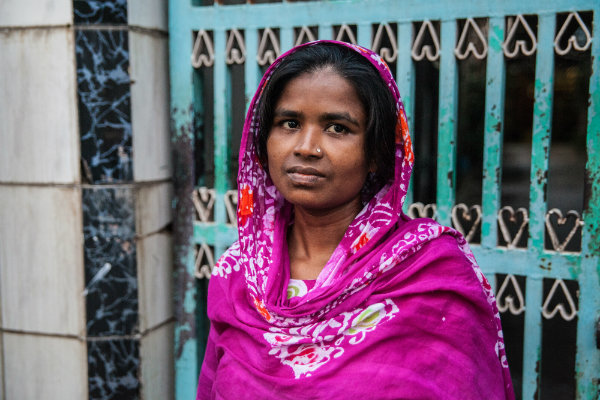Marks & Spencer and H&M have been criticised for worker‘s rights violations following a new report covering their factories in developing countries.
Both M&S and H&M have active public declarations regarding their stance on fair labour. M&S‘s 2010 ‘Plan A‘ policy pledges to “implement a process to ensure our suppliers are able to pay workers a fair living wage”, whilst H&M vowed to ensure its garment workers were paid a “fair living wage” by 2018. M&S itself was named ‘Britain’s Most Ethical High Street Retailer For Clothing’ by Ethical Consumer.
However a new report from campaign group Labour Behind The Label (LBTL), entitled “Do We Buy It?”, revealed that workers at a number of factories were not only paid below living wage, but were living in dire conditions.
“As brands that profit from consumers buying their ‘ethical‘ credentials, it is vital that M&S and H&M step up to these ideals and follow through with ensuring a living wage is paid to all the workers making their clothes,” said Anna McMullen, Policy Director at LBTL.
Workers in Indian, Bangladeshi and Sri Lankan factories, all producing clothes for M&S, were found to be earning around half of what would constitute a healthy living wage in each region. Sri Lankan factory workers were found to be working up to 100 hours overtime a month during months with high production quotas.
Certain Cambodian factories producing H&M Clothing products were found to have introduced a piece rate system, prompting workers to skip breaks in order to increase their productivity and therefore their wage. Despite this, LBTL estimates that workers still lack the money “to live with dignity.”
“There‘s always more to be done due to the complex nature of the clothing supply chain and we cannot determine the wages paid to supplier employees,” an M&S spokesperson said.
“However, we are committed to ensuring our cost prices remain high enough to pay a fair living wage, training workers in financial literacy and worker rights, and playing our part in collaborating with other brands and governments to improve the sector.”
Talks are currently underway to ensure the protection of interviewed workers, LBTL told Retail Gazette, before individual factories and suppliers can be named and addressed.


















